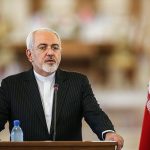The Treasury’s Office of Foreign Assets Control (OFAC) has updated its Iran Sanctions page to include more individuals and entities, including Iran’s Ministry of Culture and Islamic Guidance (Ershad), its Press Supervisory Board and several Iranian universities and related institutions. No reasoning is provided in the official US explanation as to why the universities were sanctioned — odd even if the sanctions regime hardly makes sense anyway.
Meanwhile, Columbia University Professor Gary Sick, who served on the National Security Council staff under Presidents Ford, Carter and Reagan, argues in CNN that the US’s Iran strategy has become tantamount to a war which may explode into a full-scale military conflict:
Yet today, the sanctions regime in Iran is resembling, more and more, the Iraqi and Cuban cases. We have arrived by a very different route. Instead of controlling all goods going into the country, we have ingeniously found ways of manipulating Iran’s banking system. That, together with regional boycotts, has the prospect of blocking a large proportion of Iran’s oil sales.
In Iran there has been a run on the currency, food prices are soaring, and every single person is beginning to experience some form of economic pain. That has been the source of considerable public satisfaction in Washington and elsewhere. It is also reminiscent of the early stages of the Iraqi experience. Add to that the serial murders of civilian scientists, cybertampering with Iran’s centrifuges, flyovers of U.S. drones, and covert assistance to Iranian separatist groups.
Forget the euphemisms. What would we think if a nation were doing all of this to us? The benign image of sanctions as graduated pressure has been transformed. In reality, it is war with Iran in all but name.




